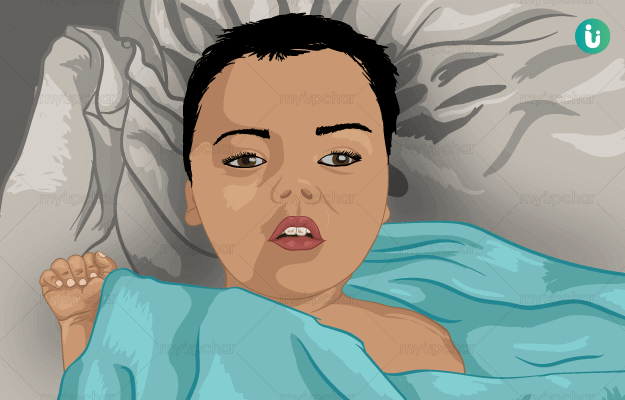What is West syndrome?
West syndrome was first identified and described by Dr West. It is a collection of symptoms described by epileptic/infantile spasms, intellectual disability and abnormal brain wave pattern. The spasms usually begin soon after birth, hence, are called infantile spasms.
What are its main associated signs and symptoms?
Symptoms may range from mild twitching of the eye to the entire body bending in half. The common clinical signs and symptoms are:
- Involuntary muscle spasms that last for 15-20 seconds and in total may last for 10-20 minutes
- Bending forward of the body
- Stiffening of the body, the arms, and the legs
- Arms and legs flung outwards
- Irritability
- Slow development
- Involuntary contractions of the head, the neck, and the trunk
What are the main causes?
Any condition that damages the brain can lead to this syndrome. West syndrome has various structural, metabolic, and genetic causes. In case of idiopathic infantile spasms, the cause remains unknown. Prenatal causes include structural malfunctions, which are seen in half of the symptomatic babies. A specific cause cannot be determined in about 70-75% cases. Tuberous sclerosis, a genetic disorder, can also cause West syndrome. Conditions like Down syndrome, Sturge Weber syndrome, infections, phenylketonuria can all lead to West syndrome.
How is it diagnosed and treated?
The diagnosis of West syndrome includes a physical examination and thorough medical history of the spasms followed by tests like:
- Electroencephalography (EEG)
- Brain scans such as computed tomography (CT) and magnetic resonance imaging (MRI)
- Infection which can be determined by blood tests, urine tests, and lumbar puncture.
- Wood’s lamp is used for skin examination to look for lesions and determine whether it is tuberous sclerosis.
- Molecular genetic tests may be used to detect genetic mutations.
Treatment of West syndrome has shown least effectiveness with the use of anticonvulsants. However, adrenocorticotropic hormone, corticosteroids, and antiepileptics have conclusively shown effectiveness. Corticosteroids are most commonly recommended. Synthetic ACTH (tetracosactrin) has more side effects when compared to natural corticotrophin. Antiepileptics have also proven to be more effective in the treatment of tuberous sclerosis as compared to corticosteroids. A ketogenic diet is an effective treatment for refractory epilepsy including infantile spasms.

 OTC Medicines for West syndrome
OTC Medicines for West syndrome















